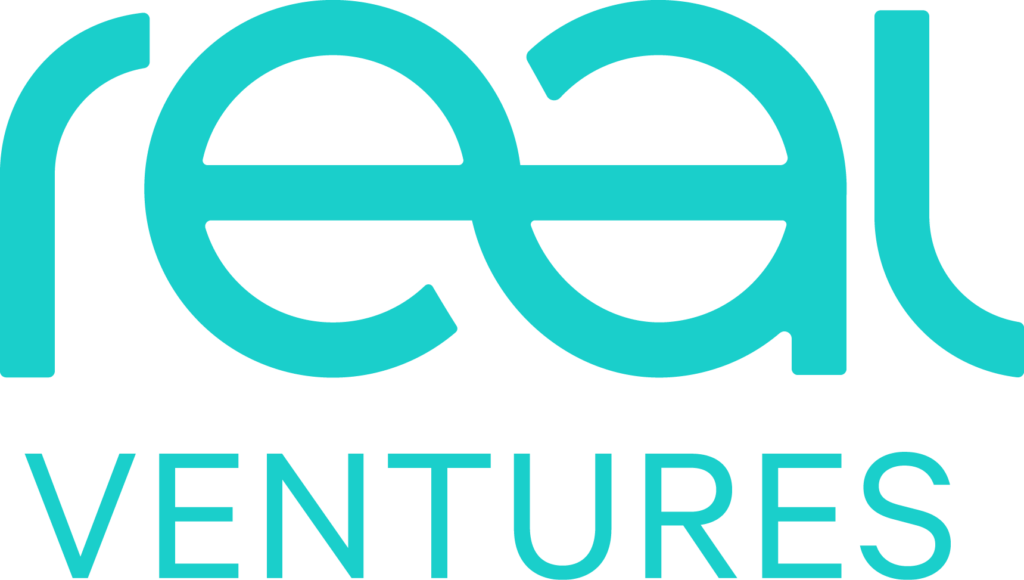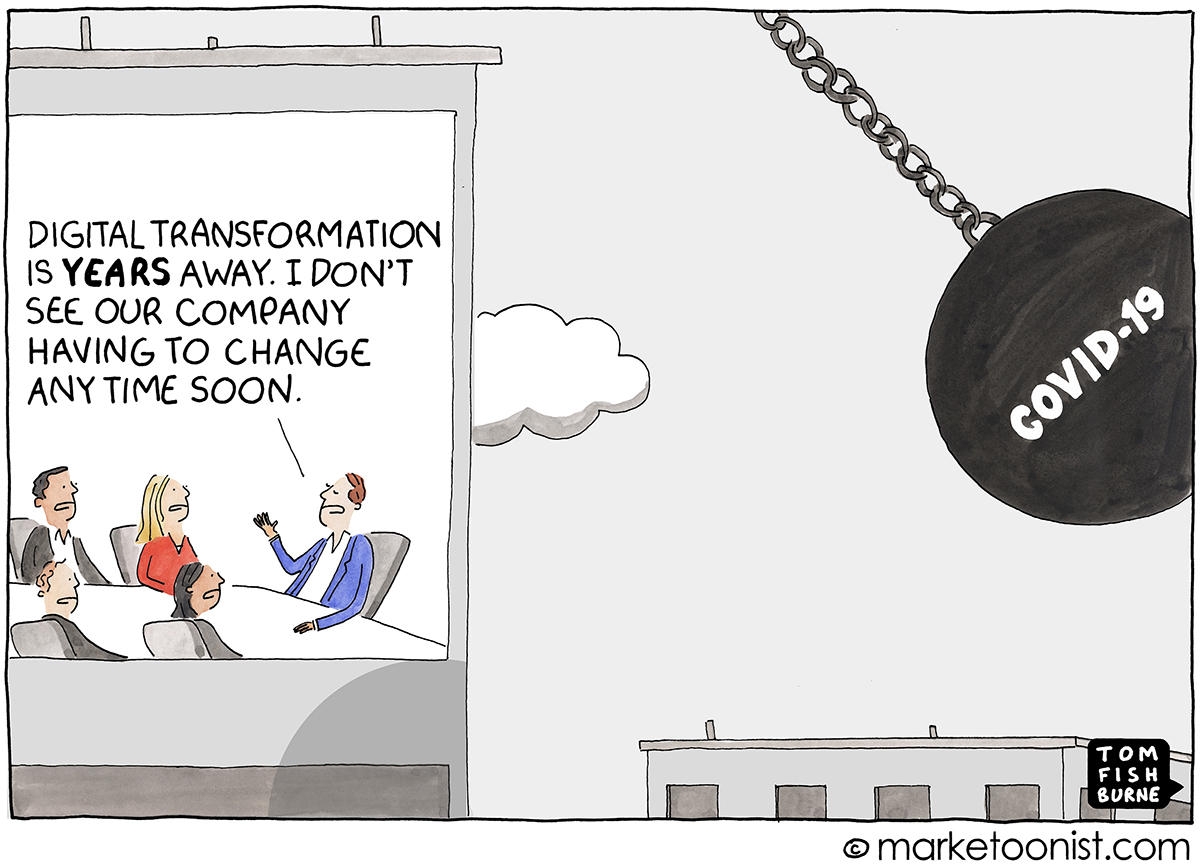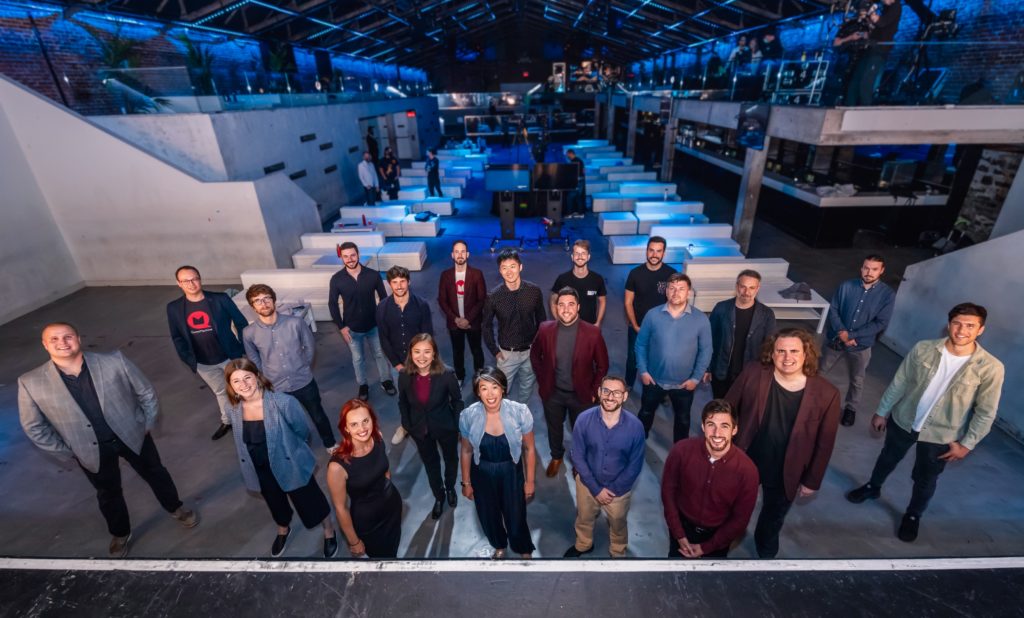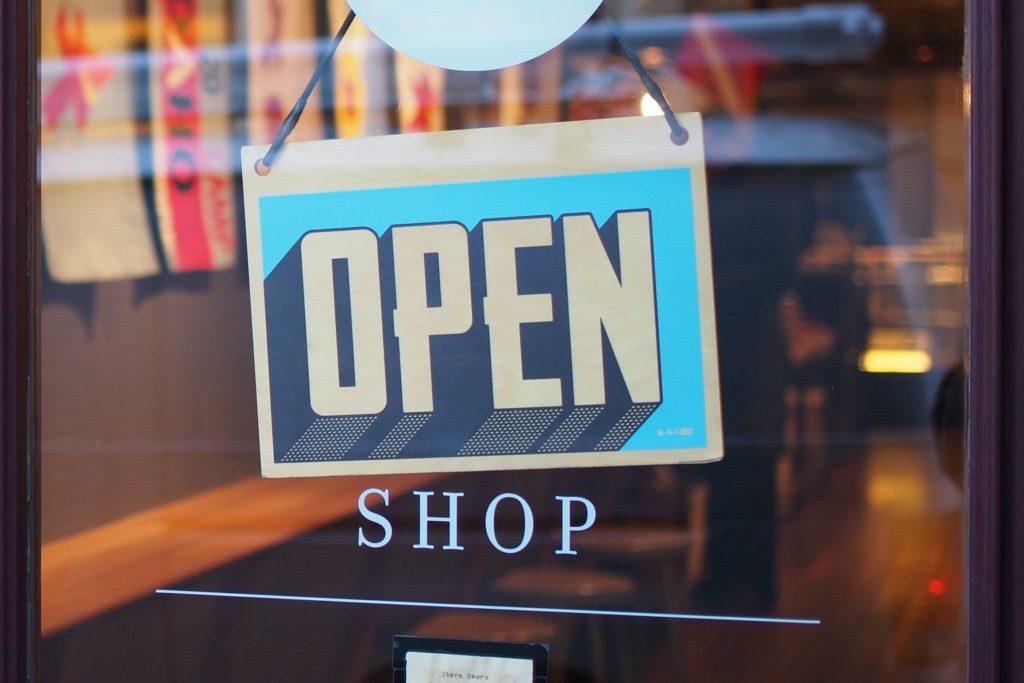This series of posts is diving into the ways Real-backed companies are responding to the COVID-19 pandemic. This is part 2 of a 3-part series.
The concept of digital transformation has been around for decades but until now there was no real sense of urgency for many industries. Then along came COVID-19, the tipping point that’s sending organizations and people scrambling to get their processes and products online and into the Cloud.
According to a European survey referenced in a recent McKinsey article about digital strategy in a time of crisis, “about 70 percent of executives from Austria, Germany, and Switzerland said the pandemic is likely to accelerate the pace of their digital transformation.” Organizations in every industry, from education to retail to manufacturing, are seeking ways to make their operations and products accessible remotely, and while social distancing measures may change in the coming months, we don’t foresee any loss of appetite for digital transformation when (and if) that happens.
But with this surge of new demand, how do the companies supplying these services grow quickly enough to satisfy their desperate customers? How do they help new customers to understand what to prioritize and when to act? We spoke with three of our founders about their responses to the crisis, their desire to help and their thoughts about fundraising in this uncertain new landscape.
Livescale finds a savvy way to help
In Montreal, the announcement that ground the province to a halt took place on March 12, an unforgettable day for Livescale cofounder and CEO, Virgile Ollivier, as it was also his 40th birthday. Livescale is a startup that enables brands to create engaging live shopping events. Within hours of the social distancing measures being put in place, the company was inundated with inbound interest and calls from panicked customers.
With the sudden shift away from interpersonal interaction, their target audience — brands and retailers — would be massively impacted. Virgile immediately asked himself what Livescale could do to help. The answer was obvious to him and his team: to offer part of their platform for free to give any company or brand the ability to live stream simultaneously to all social media networks and introduce them to their range of other solutions.
“We can’t measure the impact yet,” he said, “but we are all concerned about Coronavirus and decided to offer what we can to help people to get through this.”
This new pricing model would capitalize on increased demand while also helping their target audience: a win-win situation. By offering their social media live streaming technology free to all businesses, and their live shopping solution free of charge for 30 days, Livescale has the potential to convert a significant number of brands into committed customers — brands and retailers that might otherwise never have tried out their technology. In fact, in the past six weeks, the company has already had 100 new Canadian users registered on the platform, of which 60% already ran live streaming events.
In addition, many of Livescale’s current customers are pushing hard to accelerate their partnerships. One big customer went from signing all brands in Canada, to all brands in North America to worldwide within a matter of weeks. They want everything that was going to be in-person to be online and they need it to happen fast.
“Their plan was, using live shopping with Livescale, to not just go faster but to basically achieve what they had scheduled for the next two years in three months,” Virgile said. “That’s when we said, okay…this is gonna be huge.”
The need for data-driven manufacturing operations creates opportunities for Canvass
For Humera Malik, founder and CEO of Toronto-based Canvass Analytics, the sense of urgency around digitization did not come as a surprise but likewise is having a dramatic impact on her startup. In the business of industrial predictive analytics, her company “puts AI in the hands of industrial operators, empowering them to improve quality, optimize processes and reduce energy consumption in their day-to-day operations.” While many of her customers were considering getting their full operations digitized, these were always future plans, nice-to-haves that would be executed eventually but not at the top of the list.
“We’ve seen a sense of urgency in our customers that wasn’t there before,” Humera said. “Digitization, Cloud, data: these were all things on the list of ‘These are the options we’re considering. These are the things we’re planning to do.’ Now, all of a sudden it’s become fast forward: ‘I’ve got to do this.’”
The new reality for manufacturing plants is that they need to digitize many of the operations they previously had humans doing on the plant floor. They can only have a limited number of people in the factories, so they need to be able to control various operations digitally.
The sense of urgency for Canvass’ customers is pushing forward aspects of their partnerships that would have been implemented much later on, as well as creating new opportunities with other large manufacturers. In order to meet increased sales interest and accelerated needs of current customers, prioritization and speed are of the essence.
“We have to become more agile,” Humera continued. “There has been a piling of requests, which means we have to prioritize plus accelerate some work. Things that [customers] wanted later on, now they want early on in terms of ‘How do I access my operations? ‘How do I control my operations?’ ‘How does my workforce manage production lines using data and Machine Learning?’ It has created quite a bit of opportunity, plus a lot more coming down the pipe for us to accelerate.”
Canvass is addressing these needs by ramping up on the engineering and customer success sides of the business as they focus on accelerating their execution and delivering the best outcomes for their customers.
“We’re in a good position because we have a market that’s asking more of us,” Humera said. “It creates an opportunity for us to empower manufacturing for today and tomorrow.”
Clean.io helps customers take action to protect their users and monetization
For Matt Gillis and his team at Clean.io, a Baltimore-based cybersecurity startup that protects revenue and user experiences, the crisis has also had a net positive impact so far, though his belief is that the need for cybersecurity will be around as long as the Internet exists. According to Matt, one result of the crisis and the massive reduction in advertising spend is that it has “resulted in a lot of price decompression, which creates an opportunity for bad actors to really creep into the ecosystem.”
“We’ve seen [malware] incidents dramatically increase,” Matt said, “…which means that more than ever, our customers need our protection. As most companies are pausing decisions to buy this or spend money on that, they still want to protect their users, to protect their monetization, and so that’s why our customers have been increasing over this time.”
In addition to onboarding new customers, Matt’s team is really focused on helping their current customers to stay protected even while they try to cut costs, as the shift to working from home means that employees are accessing their online accounts from different devices that may not be secure.
“As a result of working from home, the conditions around cyber become that much more interesting,” Matt said. ”Maybe people start working from their tablet, which is their own personal device when they’re at their homes or from their PC. Maybe they’re going to connect on unsecured networks. The conditions of [workers] not being in the work environment on the secure network, on the VPN, means that the world has radically changed both in lifestyle and in security, and I think the need [for services like Clean.io] will probably be even greater as we come out of this thing.”
Fundraising during a pandemic
How do these startups with lean teams (Livescale was just 11 employees before the crisis, Canvass at 24 and Clean.io at 32) accelerate their operations to meet the demand of customers hungry for rapid results?
“When you are looking at our revenue projection for this year, we are going to do five times what we had for March,” Virgile said. “So we have to accelerate on fundraising — going from a convertible note to a full equity round. At the same time, we are hiring eleven people, so we are doubling the size of the company in six weeks.”
While fundraising in the current environment may not be ideal, all three founders are feeling positive about running their processes. In the midst of much speculation about the long-term impacts of the COVID-19 lockdown, one thing feels certain: the hunger for digital transformation is unlikely to abate once the crisis comes to an end.
For Matt at Clean.io, raising a new round of funding was already in the works before the crisis hit but after a short pause to take stock and reconsider their strategy, he’s meeting with VCs and feeling excited about what he’s hearing.
“The venture community isn’t getting paid to hold money and sit on the sidelines,” Matt said. “The venture community is getting paid to find that next moonshot and finding it is one thing, but really building relationships with entrepreneurs is another.”
Matt believes that raising successfully in this climate will require strong emotional connections with investors and that reputations and relationships are more critical now than they’ve ever been.
“We actually started our process at the beginning of last week and what we’re seeing is that VCs are open for business like they have to be,” he continued. “They’re all looking for great ideas. They’re looking for great entrepreneurs. They’re looking for billion-dollar businesses. That hasn’t changed. I think the bar is going to be raised. I think valuations will be challenged. But I feel really good about where we are now.”
**********
For more advice for growing teams and managing startups through turbulent times, sign up for our newsletter and follow us on Twitter, LinkedIn and Facebook.



